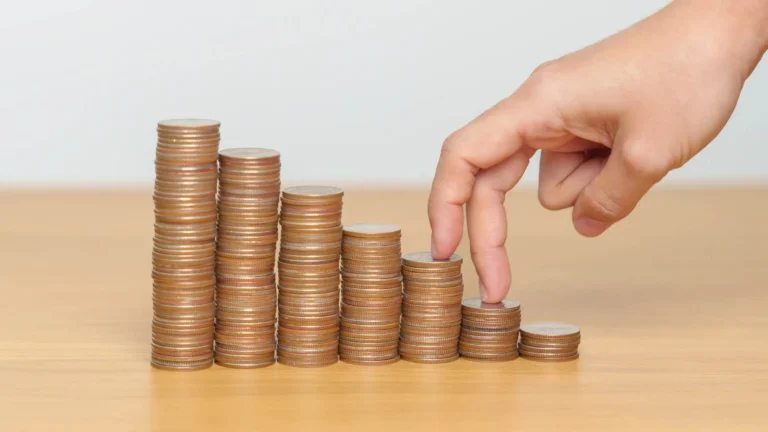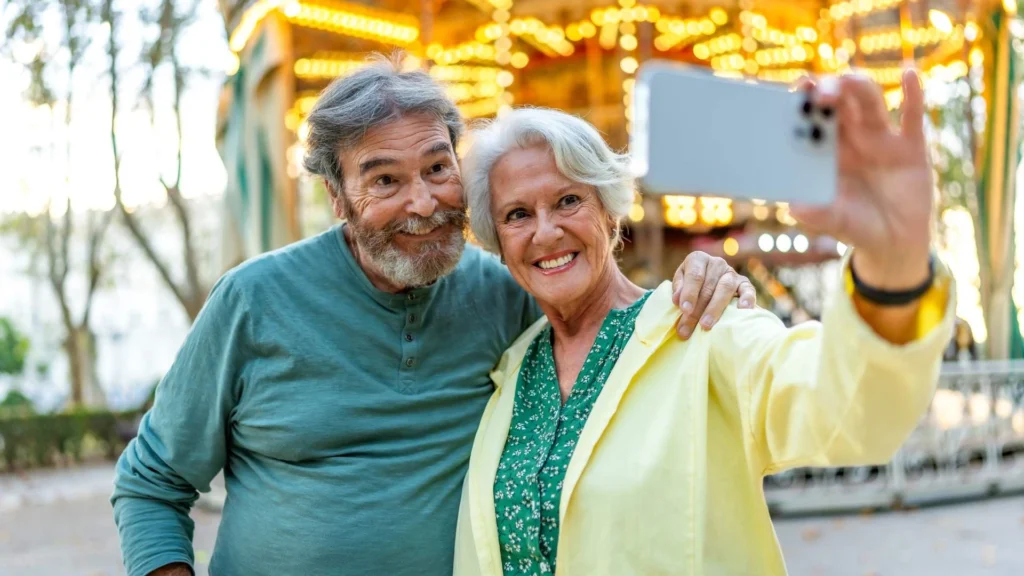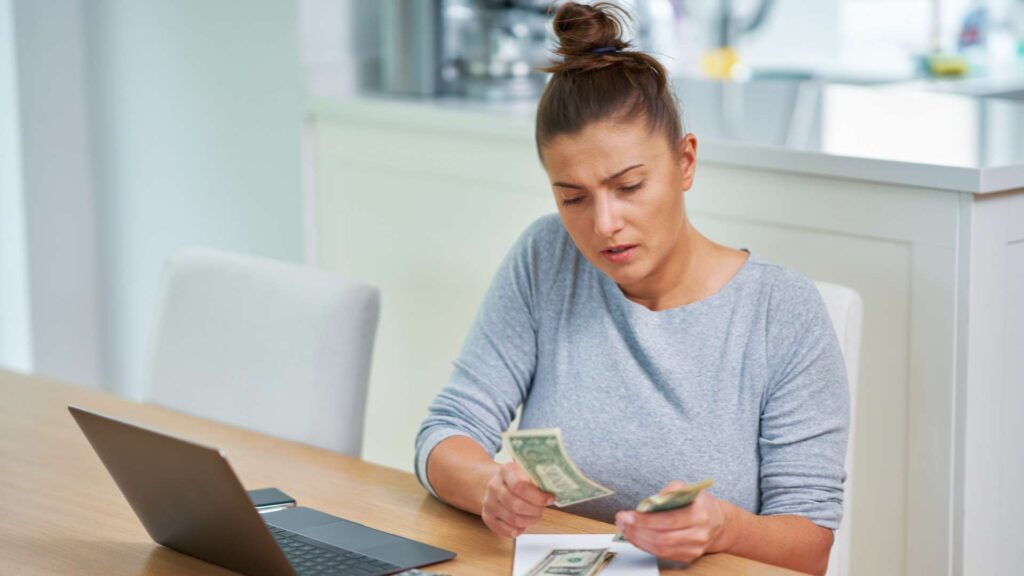Table of Contents
The Calm After the Storm: What Comes Next?
Paying off debt is a moment of relief and pride. The final payment clears, and suddenly, the stress that used to sit in the back of your mind begins to fade. You breathe differently. You think differently. For the first time in years, your money feels like it truly belongs to you.
But after that emotional high settles, a new challenge quietly appears. Without the structure of debt payments, you suddenly have extra cash — and the temptation to spend it. You might think about a vacation, a wardrobe upgrade, or a better apartment. It feels like a well-earned reward, and in many ways, it is.
The danger lies in when celebration turns into a habit. This shift is known as lifestyle inflation, and it can slowly undo years of discipline if left unchecked. Staying financially free is about learning how to manage that new sense of freedom wisely — so you can enjoy your success without losing control.
Understanding the Hidden Pull of Lifestyle Inflation
What Lifestyle Inflation Really Means
Lifestyle inflation occurs when your spending increases in line with your rising income or comfort level. It doesn’t happen overnight — it starts small. Maybe you dine out a little more often, buy nicer clothes, or upgrade your gadgets. The changes seem harmless until you realize your savings haven’t grown, even though your debt is gone.
The problem isn’t treating yourself; it’s doing it so often that it becomes your new normal. What was once a luxury turns into an expectation. You start working harder to maintain comfort instead of building freedom.
Common Signs You Might Be Falling Into It
If your expenses rise every time your income does, or if your paycheck still feels tight even after paying off debt, that’s a red flag. Lifestyle inflation often hides in daily habits — takeout meals, new subscriptions, or frequent upgrades.
It feels justified because you’ve “earned it,” but it’s quietly reversing the progress you’ve made. Recognizing it early is key to protecting your peace and your financial independence.
The Subtle Difference Between Treating Yourself and Overindulging
Treating yourself acknowledges your hard work. Overindulging forgets it.
You can enjoy comfort and convenience without guilt, but when purchases stop bringing joy and start feeling routine, it’s time to pause. Awareness makes all the difference.
Read related blog: How to Build a Debt-Free Lifestyle in 2025
The Psychology Behind Overspending After Debt
The Reward Reflex
After years of discipline and restraint, your brain craves celebration. Paying off debt is a milestone that deserves recognition, but the instinct to reward yourself can quickly become a spending loop. You associate money with relief, and soon, spending becomes the new way to feel that emotional high.
Redirecting that energy is powerful. Instead of rewarding yourself with material things, reward yourself with progress — such as investing, saving, or experiencing something meaningful. This gives you satisfaction without erasing your hard work.
The Comfort Illusion
When people finally feel financially free, they often assume that comfort must equal consumption. It’s easy to think, “Now that I’m doing well, I should live better.” The truth is, you already are. Freedom is the upgrade.
Real comfort doesn’t come from possessions. It comes from knowing you’re secure and that your money works for you, not against you.
Emotional Awareness as a Financial Tool
Before every big purchase, take a pause and ask what emotion is driving it. Are you bored, tired, or seeking validation? Emotional spending often masks stress or fatigue. When you notice this pattern, you gain back control.
Mindfulness isn’t about never spending — it’s about spending consciously.
Redefining Financial Freedom
Peace Over Possessions
True financial freedom isn’t about affording more; it’s about needing less. You worked hard to escape the weight of debt. Now your goal is to protect that peace.
Owning fewer things often brings more happiness than constantly upgrading to the latest models. It gives you time, energy, and space to focus on what truly matters — relationships, health, and personal growth.
Building a Purpose-Driven Relationship With Money
Your money now has potential. It’s not just for bills and debt; it’s a tool to build your ideal life. Use it to create experiences, learn new skills, and invest in your goals.
When your spending aligns with your values, every dollar feels intentional. You stop buying for status and start investing for satisfaction.
The “Why” Test Before Every Purchase
Before spending, ask yourself one simple question: Does this bring real value or just validation?
That one pause can stop emotional spending in its tracks. The best purchases are the ones that add meaning, not clutter.
Read related blog: The Emotional Benefits of Living Debt-Free
Turning Your Former Debt Payments Into Purpose
Redirecting Debt Payments Wisely
You already know how to budget for monthly payments — now use that same structure for your future. Redirect the money you used to send toward debt into savings, investments, or retirement contributions.
This simple habit keeps your financial discipline alive while helping your wealth grow quietly. You’ve already trained yourself to live without that money, so now it can work for you instead of creditors.
Setting New Financial Milestones
Without new goals, old habits creep back. Set fresh challenges for yourself: consider saving for a home, building an emergency fund, or starting to invest consistently. Clear goals create direction and protect your progress.
The Emotional Shift From Obligation to Opportunity
When you were paying off debt, every payment felt like a necessity. Now, those same dollars can represent freedom. You’re not clearing the past anymore — you’re building your future. That mindset shift makes all the difference.
Building a “Freedom Budget” for the Next Phase
What a Freedom Budget Looks Like
A freedom budget isn’t about cutting back; it’s about clarity. You decide what expenses bring real joy and what can be simplified. It allows room for enjoyment while keeping your savings goals intact.
Think of it as balance in action — a plan that protects your finances and your happiness equally.
Keeping Flexibility Without Losing Control
Allow yourself to indulge occasionally, but within limits. Treat experiences, not things, as your rewards. The best part of freedom is choice, and mindful choices sustain that freedom longer.
The Emotional Benefit of Boundaries
Boundaries don’t restrict you; they preserve your peace. A well-structured budget permits you to enjoy life without guilt or regret.
Staying Mindful of Emotional Spending
Recognizing Emotional Triggers
Spending is often an emotional decision, rather than a practical one. Boredom, stress, or social pressure can all impact how you manage your finances. The next time you’re about to spend impulsively, pause and ask: “What am I really feeling right now?”
Understanding your triggers helps you make choices that support your long-term happiness, rather than seeking short-term relief.
Creating Emotional Alternatives
When the urge to spend hits, replace it with a healthier outlet. Go for a walk, call a friend, or write down what you’re grateful for.
Your emotions deserve attention — but they don’t always need a purchase to be soothed.
The “Pause and Reflect” Rule
If you find something you want, wait 24 hours before buying it. If it still feels worth it after a day, go ahead. More often than not, you’ll realize the excitement has passed. This small rule can save you hundreds without feeling restrictive.
Read related blog: Inflation and Its Impact on Credit Card Debt
Growing Without Overspending
Celebrate Growth Without Expanding Expenses
Success doesn’t have to cost more. Celebrate your achievements in ways that feed your spirit instead of draining your bank account.
You can treat yourself to a meaningful experience or take a day off instead of buying something new. The joy of growth comes from progress, not possessions.
Focus on Value, Not Volume
Buy intentionally. Choose quality over quantity and experiences over excess. When your purchases reflect your priorities, every dollar feels powerful.
Value-based spending transforms money into a source of pride, not pressure.
Automate, Simplify, and Protect Your Progress
The Power of Automation
Automation keeps your discipline alive when motivation fades. Set up automatic transfers to savings, investments, and bills so your financial health grows in the background.
You don’t have to rely on willpower when systems work for you. Consistency becomes effortless.
Simplifying Your Financial Life
Too many accounts, cards, and apps can create chaos. Simplify your financial structure. Fewer moving parts mean fewer decisions and more peace of mind.
Making Money Work Silently in the Background
When your money flows automatically toward your goals, you spend less time worrying about it. The quiet efficiency of automation builds wealth while protecting emotional energy.
Read related blog: How to Save Money While Staying Debt-Free
Preparing for the Unexpected Without Fear
Strengthen Your Emergency Fund
Freedom doesn’t mean life won’t surprise you. Building an emergency fund ensures that unexpected costs don’t send you back into debt.
Now that debt payments are gone, use part of that amount to grow your cushion. Aim for at least three to six months of expenses for long-term stability.
Use Beem’s Everdraft™ as a Safety Net
Even with preparation, emergencies can happen. Beem’s Everdraft™ gives you access to instant, interest-free cash to handle short-term needs safely.
It helps you stay stable and avoid slipping into high-interest loans or credit card debt. Responsible tools like this protect the independence you’ve worked so hard to earn.
Security as the Foundation of Freedom
True freedom isn’t just having money — it’s knowing you’re safe when things go wrong. Security builds peace, and peace is what wealth is truly for.
Gratitude, Perspective, and the Art of Enough
Practicing Gratitude Daily
Gratitude grounds you. It keeps you from constantly chasing more and helps you appreciate what you already have. Taking a moment to reflect on how far you’ve come can stop unnecessary spending in its tracks.
Contentment is the strongest defense against lifestyle inflation.
Finding Fulfillment Beyond Money
You worked hard for financial stability. Now invest that same energy in personal fulfillment — learning, creating, helping others, or simply enjoying quiet moments.
Money supports your life, but it should never define it.
The Art of “Enough”
Define what “enough” means to you. Maybe it’s security, comfort, or time. When you know you’re “enough,” you stop striving for more and start living with clarity.
Saying “this is enough” isn’t settling. It’s freedom.
Read related blog: Debt-Free Living Tips for College Graduates
The Long Game of Financial Freedom
From Paying Off Debt to Building a Legacy
Debt freedom is not the end; it’s the foundation. Use the same habits that helped you get here to build long-term wealth.
Saving, investing, and staying mindful today create opportunities for the future — for you and those you love.
Sustaining Freedom With Awareness
Check in with your goals regularly. Life changes, and so will your priorities. Reviewing your finances every few months keeps you aligned and confident.
Using Beem’s Everdraft™ as a Safety Companion
Even as your wealth grows, Everdraft™ remains a dependable support system for emergencies. It ensures you stay protected, balanced, and free — no matter what stage you’re in.
Conclusion: Freedom Is a Practice, Not a Moment
Becoming debt-free is a milestone. Staying debt-free is a mindset. The habits that helped you climb out of debt are the same ones that will keep you financially and emotionally free.
Avoiding lifestyle inflation doesn’t mean denying yourself joy. It means living intentionally — spending where it matters and saving where it counts. It’s about protecting the peace you’ve worked so hard to create.
And when life throws unexpected challenges your way, Beem’s Everdraft™ is there to help you handle them confidently and responsibly, without falling back into debt. Download the app now!
Freedom isn’t about having more. It’s about feeling secure, content, and in control. You’ve earned that peace — now it’s time to keep it.
FAQs on How to Avoid Lifestyle Inflation After Paying Off Debt
What causes lifestyle inflation after paying off debt?
It often happens when your spending increases as your income or comfort level grows. Emotional relief and social influence can lead to unnecessary upgrades. Awareness and structure help prevent it from taking root.
How can I stop spending more as my income grows?
Start by keeping your budget steady, even as earnings rise. Redirect extra income to savings or investments. This keeps your progress visible and your freedom protected.
What should I do with the money I used for debt payments?
Redirect it toward long-term goals, such as an emergency fund, retirement, or a down payment for a home. Reusing that structure builds wealth rather than creating new debt.
How do I celebrate financial milestones responsibly?
Reward yourself in meaningful, intentional ways — experiences, learning, or self-care rather than impulsive purchases. True celebration enhances peace, not pressure.
How can Beem’s Everdraft™ help me maintain financial stability?
Everdraft™ offers interest-free cash access during emergencies, ensuring you stay secure without turning to loans or credit cards. It keeps your financial growth uninterrupted.















































